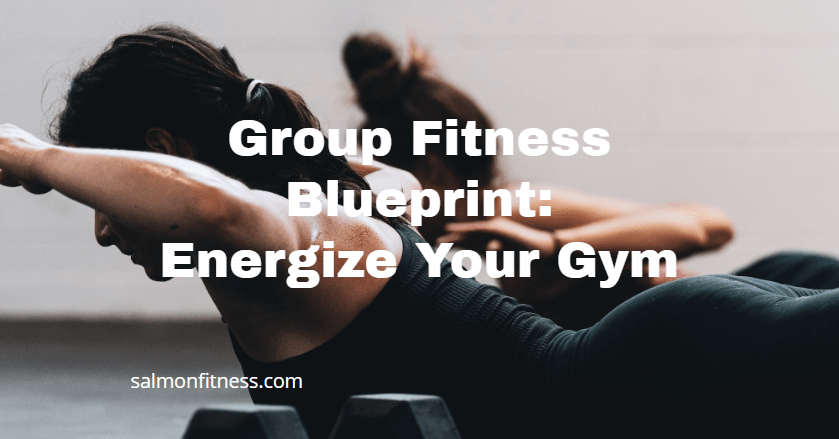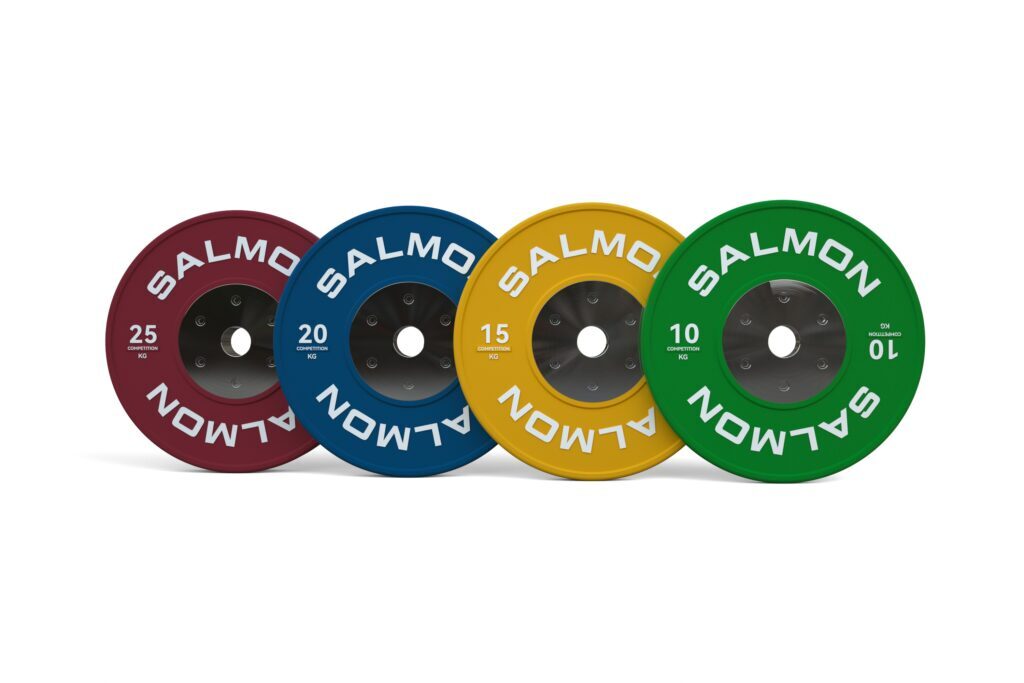
Are you harnessing the full potential of your group workout sessions?
Do they ignite a sense of community, drive engagement, and ensure repeat attendance?
Let’s dive into innovative workout ideas that promise to keep your clients coming back for more.
When it comes to fitness, the collective energy of a group workout can be the difference between a lackluster session and a transformational experience.
But how do you ensure each class is more than just a workout?
Table of Contents

The Rise of Group Workouts
In recent years, group workouts have become a necessity in fitness regimes worldwide.
They offer a blend of social interaction, collective motivation, and shared goals that individual workouts often lack.
However, the success of these sessions depends on how engaging they are.
A truly engaging group workout can lead to better retention, higher energy levels, and an overall more positive fitness experience.

The Philosophy of Group Training in Gyms
Group training in gyms embodies a philosophy centered around communal participation in physical exercise, leveraging the dynamics of social influence and collective effort to enhance individual motivation and performance. Here’s an overview of the concept:
- Collective Motivation
Group training creates an atmosphere where participants feed off each other’s energy, which often leads to higher levels of exertion than in solitary workouts. The shared experience of pushing through tough workouts can foster a sense of camaraderie and accountability among members.
- Inclusivity and Diversity
A well-designed group training program accommodates various fitness levels, ages, and backgrounds. Instructors can modify exercises to suit individual needs within the group, making everyone feel welcome and capable of participating.
- Structured Guidance
Group training offers structured workouts led by certified trainers. This provides a balanced approach to fitness that might be difficult for individuals to achieve on their own. Trainers can provide instant feedback and ensure proper form, reducing the risk of injury.

- Fun and Variety
By incorporating a mix of workouts like HIIT, yoga, strength training, and dance fitness, group classes can keep exercise fun and engaging. This variety not only challenges different muscle groups but also keeps members mentally stimulated and eager to attend.
- Performance Enhancement
The group setting can lead to a healthy competitive spirit, encouraging participants to push their limits. Moreover, regular attendance and effort in group workouts can lead to measurable improvements in physical performance and fitness levels.
- Behavioral Change and Retention
Group training can foster lasting behavioral change. Regular attendees can develop a routine and integrate fitness into their lifestyle. This habitual participation often translates into better member retention for gyms.

- Community Building
Perhaps one of the most significant aspects of group training is the sense of community it builds. Participants often feel a strong connection to their “fitness family,” which can be a powerful retention tool for gyms.
- Efficient Utilization of Space and Resources
From a business perspective, group training allows gyms to serve multiple members simultaneously, making efficient use of space and resources. This can maximize revenue per square foot compared to individual training sessions.
- Marketing and Member Acquisition
Group classes can be a strong selling point for potential new members. The energy and visible enjoyment of current participants can be compelling to prospects who observe or trial a class.
In summary, the concept of group training in gyms is multifaceted, aiming to create an environment that is motivating, inclusive, and effective for fostering health and wellness. It’s not just about the workouts themselves, but also about creating a positive, supportive community that members are proud to be a part of.

Key Elements of an Engaging Group Workout
To create a group workout that keeps participants hooked, there are several elements to consider:
- Variety: Introduce different exercises, equipment, and formats to keep the workouts fresh and challenging.
- Challenge: Tailor the workout intensity to push clients to their limits while ensuring they can manage the difficulty.
- Community: Encourage interaction and support among participants to foster a sense of belonging.
Theme-Based Fitness Classes
Themes can turn a regular workout into an experience. Use our customizable equipment to create settings for:
- Superhero Day: Participants perform exercises that make them feel powerful, using equipment that matches the theme’s colors.
- Retro Fitness: A fun, high-energy class with a playlist and equipment colors to match the theme.

Incorporating Salmon Fitness Equipment
Our range of products is not just functional; it’s a critical component in building your fitness community. Here’s how:
- Adaptability: Our adjustable benches can cater to various exercises and body types, making inclusivity a priority.
- Durability: The robust construction of our equipment ensures that it can withstand the rigors of daily group workouts without fail.
- Customization: We offer customization to resonate with your brand’s identity, allowing for a cohesive look and feel in your workout space.

Implementing a Group Fitness Program: A Feasibility Plan for Your Gym
Creating a feasible plan for offering group fitness classes at a gym requires a strategic approach that considers the unique aspects of your facility, the demographics of your clientele, and the resources at your disposal. Here’s a detailed plan that could be adopted by a gym looking to implement or enhance its group fitness program:
Assessment of Needs and Resources
Objective: Identify the demand for group fitness classes and the resources needed to meet that demand.
- Conduct a survey of current gym members to gauge interest in group fitness classes, including preferred types and times.
- Assess the available space in the gym for hosting classes without disrupting other gym activities.
- Determine the availability of instructors qualified to lead group fitness sessions.
- Evaluate the current equipment and identify any additional equipment needed specifically for group classes.
Program Design
Objective: Develop a range of group fitness classes that cater to the interests and fitness levels of gym members.
- Create a diverse class schedule that includes high-intensity interval training (HIIT), strength and conditioning, yoga, Pilates, spin classes, and more.
- Structure classes to accommodate different skill levels, from beginners to advanced participants.
- Ensure that class times are convenient for members, such as early mornings, lunch hours, and evenings.

Equipment Procurement
Objective: Equip the facility with the necessary tools to deliver a variety of group fitness classes effectively.
- Invest in versatile, high-quality equipment from Salmon Fitness, such as adjustable benches, racks, and weight sets, to support a wide range of activities.
- Consider the purchase of additional items such as mats, resistance bands, and stability balls.
- Ensure that there is sufficient storage space for equipment to keep the workout area organized and safe.
Marketing and Promotion
Objective: Attract members to the new group fitness classes and encourage regular attendance.
- Leverage social media, the gym’s website, and email newsletters to announce the new program.
- Offer free trial classes to get members excited and provide a taste of what they can expect.
- Partner with local businesses or influencers to reach a wider audience and create buzz around the new offerings.
Hiring and Training Staff
Objective: Build a team of professional, charismatic instructors who can deliver engaging and effective workouts.
- Hire certified instructors with experience in group fitness and the ability to connect with participants.
- Provide ongoing training to ensure that all instructors are up-to-date with the latest fitness trends and safety protocols.
- Encourage instructors to personalize their classes while maintaining a structured format that aligns with the gym’s standards.

Implementation and Scheduling
Objective: Launch the group fitness program with a schedule that maximizes attendance and member satisfaction.
- Use a gym management software to handle class bookings, waitlists, and member check-ins.
- Start with a soft launch of select classes to gather feedback and make adjustments before the full rollout.
- Schedule instructors and plan equipment usage efficiently to avoid conflicts and ensure smooth operations.
Monitoring and Evaluation
Objective: Continuously assess the performance of the group fitness program and make improvements where necessary.
- Collect member feedback regularly to identify what is working and what can be improved.
- Track attendance and class popularity to adjust the schedule and class offerings as needed.
- Review the financial performance of the group fitness program to ensure it meets business objectives.

Conclusion: Crafting Unforgettable Group Workouts
This feasibility plan outlines the steps required to offer a group fitness program successfully. It is a comprehensive approach that ensures all aspects of the program are considered, from initial assessment to ongoing evaluation and adjustment.
With careful planning and execution, a group fitness program can significantly enhance the value of a gym, attracting new members and retaining existing ones.
With the right approach and equipment, group workouts can be more than just physical training sessions—they can be the highlight of your clients’ day.
Salmon Fitness is dedicated to providing the tools and equipment that empower you to create these compelling experiences. We understand that in a competitive market, the details matter. Our equipment is built to inspire, endure, and adapt——just like the businesses we serve.

